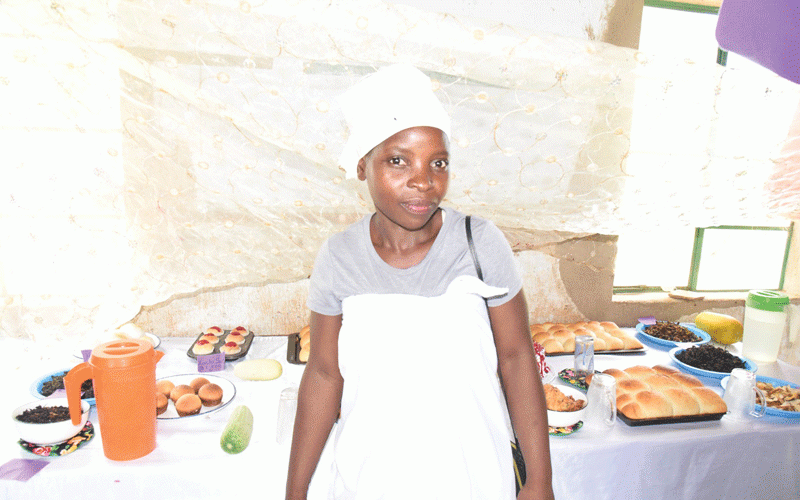
NEDDY Kabungaidze (20) faced a daily battle that few could comprehend.
Living in Sahumani village, Mutasa district, Manicaland province, she was trapped in a cycle of severe gender-based violence (GBV) and illiteracy.
Her marriage, fraught with her husband’s oppressive demands, left her feeling powerless, isolated and teetering on the brink of collapse.
Kabungaidze’s life was dominated by fear and dependence.
Each day served as a painful reminder of her vulnerability, as her husband used her inability to read against her — issuing commands that left her feeling like a prisoner in her own home.
She could not read phone messages and instructions from her husband, further compounding their marriage.
However, a glimmer of hope emerged when she enrolled in the Supporting Adolescent Girls Education (Sage) programme.
This initiative, part of the Teacher Effectiveness and Equitable Access for All Children (Teach) project, aims to empower marginalised girls like Kabungaidze through foundational literacy and vocational skills training.
- Information key to climate change mitigation: FAO
- Pupil commits suicide over satanism taunt
- Apostolic women suffer in the name of religion
- Apostolic sect members embrace measles vaccine
Keep Reading
Funded by UKAid and implemented by Plan International Zimbabwe in collaboration with the Government of Zimbabwe, Sage has been a transformative force in her life.
Through the programme, Kabungaidze learned not only to read and write, but also essential cookery and baking skills.
These newfound abilities allowed her to nourish her family and rejuvenated her marriage.
With her confidence soaring, she began to reclaim her agency, challenging the violence that had plagued her life for so long.
In a recent interview at the Sahumani hub, Kabungaidze reflected on her journey.
“I was trapped in a marriage that was slowly destroying me,” she said.
“My husband would beat me up, insult me and control every aspect of my life.
“But everything changed when I joined the empowerment programme.
“For the first time in my life, I felt a sense of independence and confidence.”
The vocational skills training not only equipped her for financial independence, but also educated her about her rights as a woman.
“I learned that I did not have to tolerate the abuse. With my newfound knowledge, I started to assert myself in my marriage,” Kabungaidze explained.
“To my surprise, he began to respect me, and our marriage started to transform.”
Today, she stands as a symbol of resilience and empowerment.
“I am no longer trapped in a cycle of violence,” she said.
“My marriage is rejuvenated and I have a newfound sense of purpose and self-worth.”
Kabungaidze encourages other women suffering in silence to seek help and embrace the power of education.
In Mutasa district, GBV, early marriages and restricted access to healthcare have been rampant.
Local headman Moji Sahumani noted the significant changes brought about by the Sage programme.
“Just a few years ago, my village was plagued by cases of GBV, but thanks to Plan International Zimbabwe, our community has undergone a remarkable shift,” he said.
Rebecca Nzara, a community care worker and GBV ward 8 focal person, said: “I have seen a significant decline in cases of gender-based violence.
“Women are now more confident and vocal about their rights.”
Nzara commended Plan International Zimbabwe for their efforts in empowering women and fostering community change.
Charlotte Chishava, project manager at Plan International Zimbabwe, highlighted the broader societal impact of the Sage initiative.
“Marginalised girls in Zimbabwe face complex barriers to accessing education, underpinned by gender inequalities,” she said.
“Our project targets these barriers, promoting gender-transformative change and creating an enabling environment for girls.”
In Manicaland province, Mutasa district is second to Chipinge in terms of GBV cases.
In 2023, 32% of women in the district experienced physical violence.
Headman Sahumani said he used to record about 15 cases of GBV in his area per month, but, now he is receiving three.
According with United Nations Population Fund, in Zimbabwe, about one in three women aged 15 to 49 have experienced physical violence and about 1 in 4 women have experienced sexual violence since the age of 15.
As Kabungaidze steps into a brighter future, her journey reflects the transformative power of education and empowerment — not just for herself, but for her community as a whole.
Her story stands as a testament to resilience and the possibility of change in the face of adversity.










